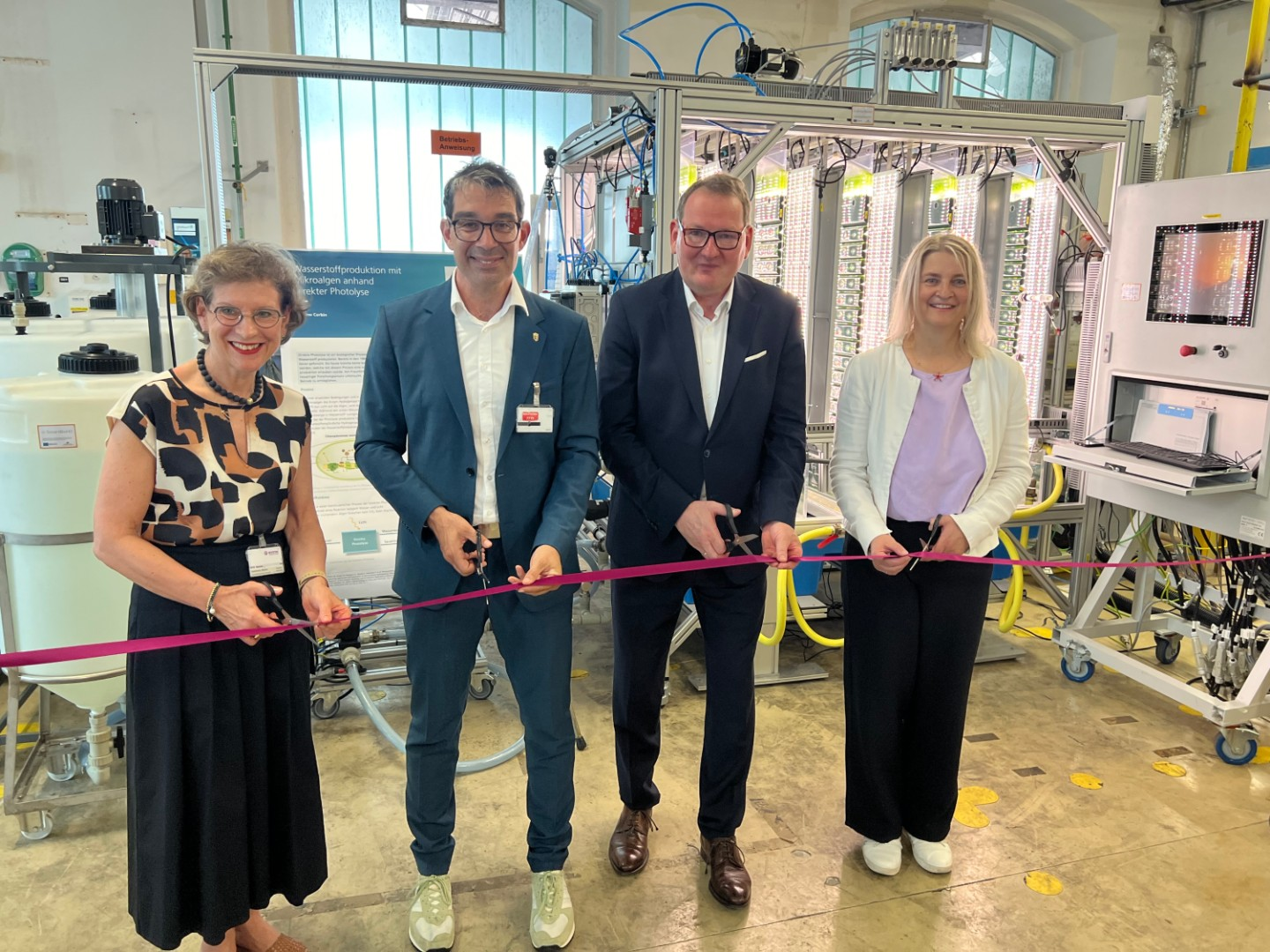Revolutionizing Waste Management: Green Hydrogen Production in Rheinfelden
Key Ideas
- The SmartBioH2-BW biorefinery in Rheinfelden utilizes industrial waste streams to produce green hydrogen and organic raw materials, demonstrating a sustainable circular economy approach.
- Dr. Baumann emphasizes the importance of transitioning to bio-based and recycled materials to protect the environment and strengthen Baden-Württemberg's business resilience.
- Evonik's involvement in driving the green transformation of its industry by producing clean hydrogen from waste streams highlights a commitment to sustainability.
- The biorefinery project involves intelligently coupled biotechnological processes, such as fermentative dark photosynthesis and microalgae cultivation, to efficiently convert waste into valuable products like hydrogen.
The SmartBioH2-BW demonstration plant in Rheinfelden, Germany, marks a significant step towards a circular economy by utilizing industrial waste streams to produce green hydrogen and organic raw materials. The plant, inaugurated by State Secretary Dr. Andre Baumann, is part of a larger project led by the Fraunhofer Institute, promoting the extraction of raw materials from waste and wastewater to support sustainable bioeconomy. Various stakeholders, including politicians and industry representatives, visited the plant to witness the innovative biorefinery in action. Evonik's site in Rheinfelden plays a crucial role in the project, showcasing a commitment to green transformation and circular economy principles. The biorefinery, designed and built by the Fraunhofer Institute, employs biotechnological processes like fermentative dark photosynthesis and microalgae cultivation to convert waste streams efficiently into hydrogen and other bio-based products. Through meticulous testing and scaling up of processes, the plant now operates under real conditions, demonstrating the feasibility of producing hydrogen from rinse water and residual materials. The involvement of purple bacteria in dark fermentation processes further emphasizes the plant's ability to generate hydrogen and valuable by-products such as pigments and bioplastics. The success of the SmartBioH2-BW project not only contributes to environmental protection but also showcases the potential for sustainable business practices in Baden-Württemberg and beyond.
Topics
Green Hydrogen
Innovation
Sustainability
Environment
Research
Biorefinery
Bioeconomy
Circulareconomy
Wastemanagement
Latest News
